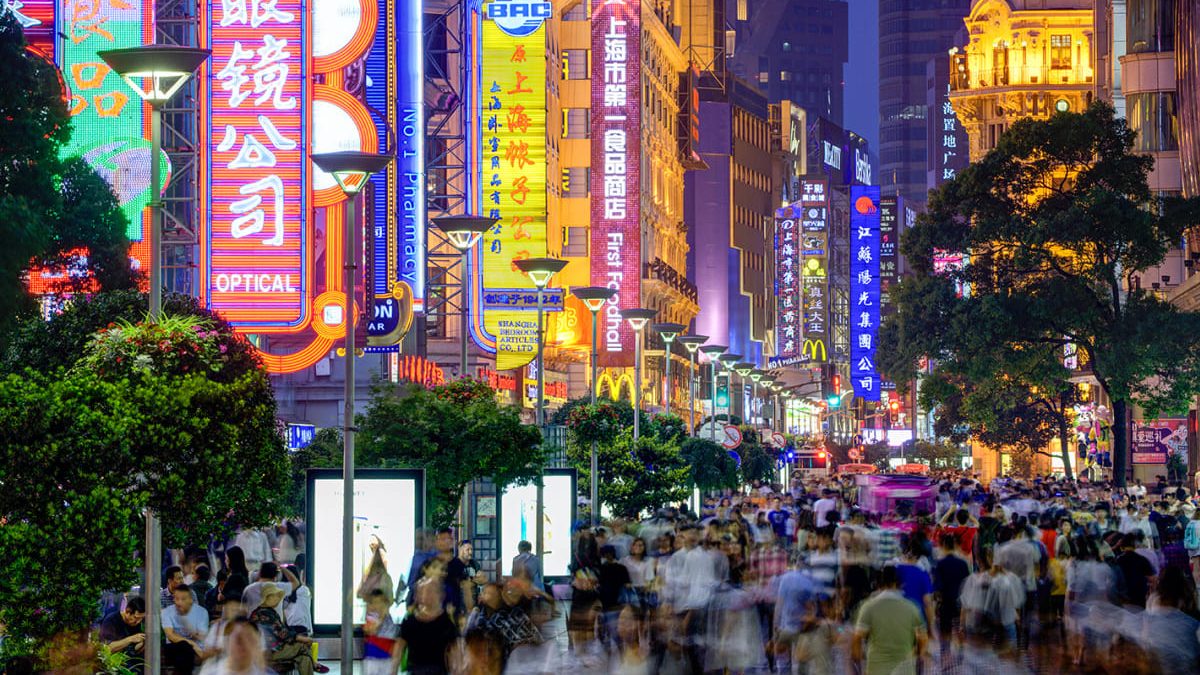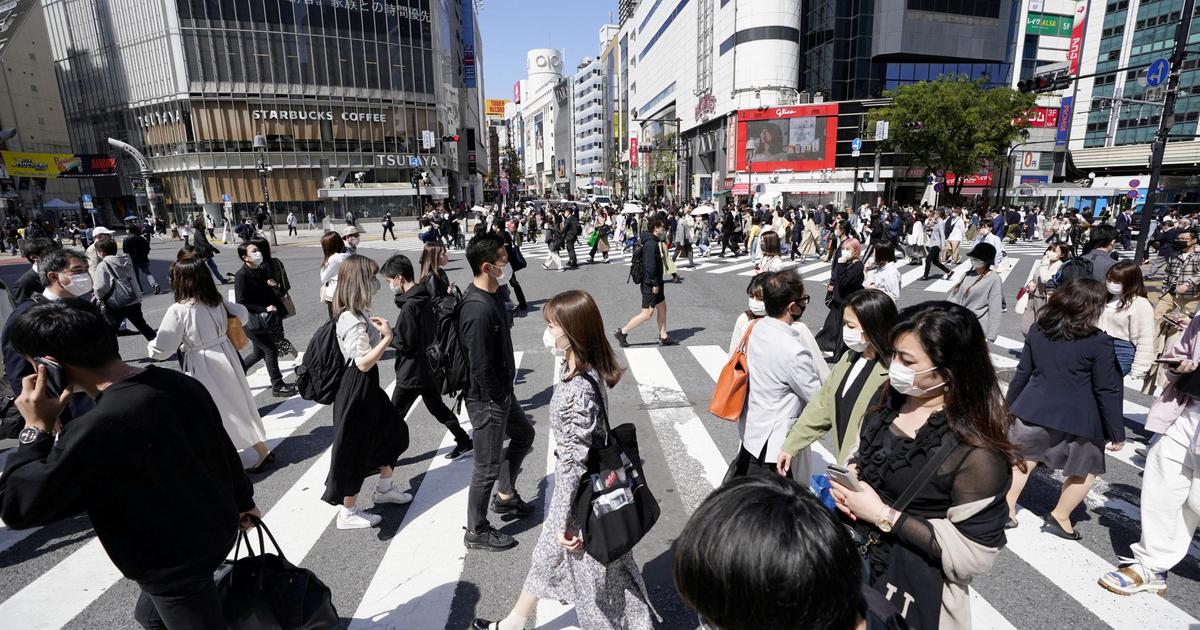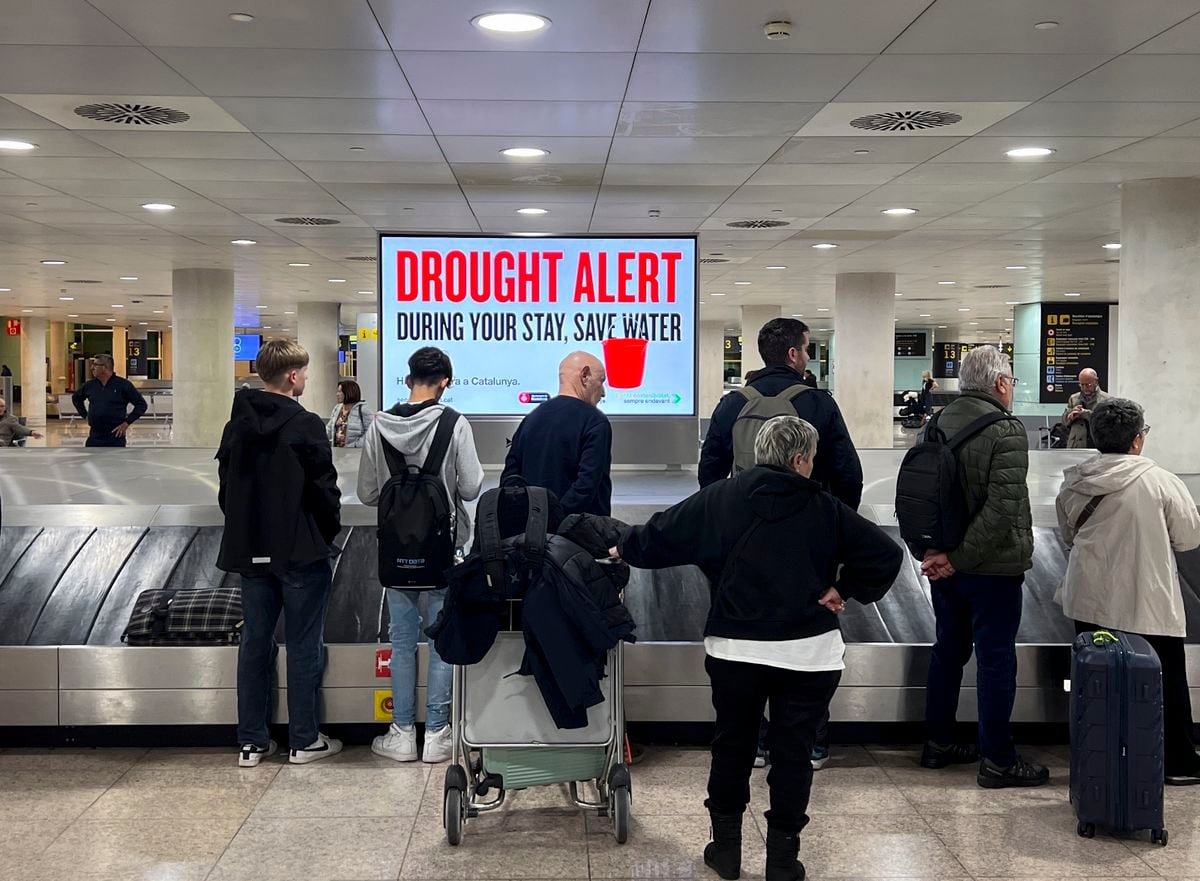China minimizes the magnitude of its covid-19 outbreak, according to the WHO 2:50
(CNN) --
There's some potentially good news for travelers hoping to visit China in 2023.
New variant of covid-19 XBB.1.5 generates an increase in cases and puts the US on alert.
After the country was largely cut off from the world for almost three years, the Chinese authorities announced the lifting of several important entry restrictions related to covid-19 that will take effect on January 8.
China has removed quarantine requirements for all international arrivals, its most significant move yet, as it moves away from its strict zero-covid policy.
But who can visit the country?
Here, we address some of the top questions that may be on travelers' minds right now as they start planning their 2023 travel.
Is China hiding information about the true impact of covid-19?
0:53
Can foreigners travel to China for leisure tourism?
China has yet to roll out the red carpet for international tourists seeking to experience the country's many attractions.
The borders remain largely closed to foreigners, apart from business or family visits, though the government has signaled it is seeking to ease restrictions in this area as well.
No schedule has been announced.
advertising
According to government notices, for now it plans to focus on facilitating visa applications for foreign nationals traveling to China for business, employment, study, family visits and meetings.
George Cao, chief executive of Dragon Trail International, a China-focused research and marketing company, tells CNN Travel via email that several things need to happen before the country reopens to leisure tourists after the lifting of lockdowns. the quarantine.
“The next step is for China to start issuing visas for tourism purposes again.
Although this is part of the reopening plan that has been announced, we do not have an official date yet, ”he says.
"It is also crucial that international flight schedules increase, which will make it easier to get to China and will also reduce flight prices, which are still well above pre-pandemic levels. This has already started for certain destinations, e.g. For example, many flights between China and South Korea, and between China and Singapore have already resumed."
But it is not yet clear how fast the process will be for other destinations or routes, he adds.
What are the new rules?
As noted, quarantine is no longer necessary as of January 8.
Prior to that date, incoming travelers have been subject to five days of hotel quarantine and three days of self-isolation at home upon arrival.
Travelers heading to China are now only required to take a nucleic acid test 48 hours before their departure.
Those with negative results no longer have to apply for a green health code from Chinese embassies and consulates abroad before entering.
However, they must complete the results on their customs health declaration forms.
If they test positive, they will not be allowed to travel to China until their tests come back negative.
Although foreign tourists cannot visit yet, the changes are especially welcome for Chinese citizens studying or working abroad.
Those who could not afford sky-high airline ticket prices and lengthy hotel quarantines have not been able to return home for nearly three years.
China insists that it is openly sharing data on covid-19 infections with the international community
Is international tourism important to China?
Even when the borders are opened to international tourists, the question remains of how much demand there will be in both the short and long term.
"This is a big unknown right now, and it will be one of the most critical factors in the recovery of inbound travel to China in the months and years to come," Cao says.
"The Chinese government has increasingly recognized the importance of inbound travel, and China was one of the world's top tourist destinations in 2019, with 65.7 million arrivals."
Cao says his company expects the government to put more resources into promoting inbound travel in the coming years, "to rebuild and expand this market, and to develop new destinations and itineraries for international visitors."
The United States worries about the emergence of new variants of covid-19 1:26
What are the current restrictions for covid-19 in China?
China abruptly abandoned its long-standing zero-Covid policy in early December following nationwide protests over its high social and economic cost.
Authorities reversed mass testing, lockdowns and allowed positive patients to self-quarantine at home.
Health QR codes on mobile phones still exist, but are no longer widely applied for those entering public spaces or traveling on public transport.
Technically, there are no current government mandates regarding the use of face masks or social distancing.
But those visiting indoor public spaces or traveling on public transportation will likely be required to wear a mask.
What is the covid-19 situation in China right now?
There is a big shadow hanging over China's reopening plans: covid-19.
Cases have skyrocketed in recent weeks as restrictions are eased.
The outbreak has overwhelmed hospitals and crematoriums, led to shortages of basic medicines and raised fears of an even darker month ahead, as experts warn of a spread to poorer rural areas during the upcoming Lunar New Year.
And now the World Health Organization accuses China of "underestimating" the severity of its Covid outbreak and has criticized its "narrow" definition of what constitutes a Covid death, as top global health officials urge Beijing to share more data on explosive spread.
Is domestic travel picking up?
Throughout the pandemic, domestic travel has waxed and waned in line with the changing scenarios of covid-19.
Unable to travel freely, many Chinese have chosen to explore within their country's borders during the pandemic.
Right now, the current travel volume in China is low, says Dragon Trail's Cao.
"But there are no longer movement restrictions with digital health codes, as there were before this December," he says.
"We are already starting to see some pain points emerging as China's domestic market picks up once again."
Among these is the island province of Hainan, Cao says, pointing to data from Chinese online travel agencies Ctrip and Qunar, which reported significant increases in bookings and searches for flights to Sanya, a popular tourist city on the island.
"Qunar data shows increases in bookings from Beijing especially as the first batch of people who contracted covid-19 after restrictions were lifted have now recovered," Cao says.
"Looking ahead, Ctrip reported significant increases in flight searches to Hainan for the New Year and Chinese New Year holidays (January 21-27)."
Most of China's top attractions, such as museums, theme parks, and national parks, are now open to visitors.
Alarm in the US due to the spread of covid-19 in China 2:28
What are the covid restrictions in Hong Kong?
Unlike mainland China, Hong Kong, a special administrative region, is now fully open to international travelers and has lifted most of its entry restrictions.
On December 28, the city removed the requirement that incoming travelers take a mandatory covid-19 PCR test upon arrival.
Travelers arriving in Hong Kong must still submit negative PCR test results within 48 hours before their flights to Hong Kong, or rapid antigen tests (RAT) within 24 hours before their flights.
The government also got rid of its vaccination pass, which the public needed to use as proof of vaccination to enter most places.
There is no longer a limit on public gatherings, however the mask mandate remains mandatory in all public places, including outdoors.
Travelers arriving in the city also continue to be required to take rapid antigen tests (RATs) for five days upon arrival.
In early December, Hong Kong stopped contact tracing of infected people.
In September, the city ended a mandatory hotel quarantine for foreign travelers.
Meanwhile, the Chinese government announced on Thursday that it will reopen its border with Hong Kong on January 8.
Up to 60,000 Hong Kong residents will be able to cross the border into the mainland daily, and vice versa, by land, air and sea ports, authorities said on Thursday.
Most of the previously bustling border crossings between Hong Kong and mainland China had been closed since early 2020, placing a heavy burden on families and businesses with ties to both sides.
The United States will ask travelers from China to test negative for covid-19 before their flight
Can Chinese citizens travel abroad for pleasure now?
Before this month's easing of restrictions, authorities in China had imposed a de facto international travel ban, barring citizens from traveling abroad for "non-essential" reasons.
But as of January 8, international leisure travel is allowed again.
According to a report by Chinese state media, the National Immigration Administration issued a notice in late December saying it will resume accepting and approving applications from Chinese citizens for ordinary passports for tourism purposes from January 8.
Is the demand for overseas travel high among the Chinese?
To all appearances, tourism-hungry Chinese citizens are excited to freely travel abroad again.
Many users of Weibo (a social media platform in China) have been celebrating their newfound freedom to travel with the hashtag "Where to travel abroad next year" racking up close to 80 million views by the end of December.
Online searches for outbound flights and hotels abroad hit a three-year high in the final days of 2022 on Trip.com, according to company data.
Searches for popular destinations increased tenfold in the 30 minutes after the reopening announcement, with many people searching for group tours during the Lunar New Year holiday season in January, data shows.
Macau, Hong Kong, Japan, Thailand, South Korea, the United States and the United Kingdom were among the top 10 destinations for the website with the fastest growth in search volume since the announcement.
The US imposes measures for flights from China 1:28
How has the world reacted to the news?
The lifting of restrictions has turned out to be quite controversial.
Much has been said about the importance of Chinese tourists in the recovery efforts of the world tourism economy.
Before the pandemic, China was the world's largest market for outbound travel, having grown from 4.5 million travelers in 2000 to 150 million in 2018. It is also the world's top tourism spender, with US$ 277 billion or 16% of the global total of $1.7 billion spent on international tourism, according to the UN World Tourism Organization.
China alone contributed 51% of travel and tourism GDP in the Asia-Pacific region in 2018, according to the World Travel and Tourism Council.
And Chinese travelers typically accounted for 30% of all arrivals in Thailand.
But now that they are ready to travel again, much of the world is showing anxiety around their return due to the covid-19 situation in the country.
Multiple destinations, including the US, Australia, UK and Japan, are adding additional covid-19 testing requirements for passengers flying from China, either directly or through a third country.
The director general of the International Air Transport Association, Willie Walsh, called the reinstatement of these restrictions "extremely disappointing" on Wednesday, in a statement posted on the website of the airline trade body.
"Several countries are introducing COVID-19 testing and other measures for travelers from China, despite the virus already circulating widely within their borders. It is extremely disappointing to see this knee-jerk reinstatement of measures that have proven ineffective in the last three years," Walsh said.
"Governments should base their decisions on 'scientific facts' rather than 'scientific policy,'" she added.
Includes reporting by Jessie Yeung, Selina Wang, Cheng Cheng, Kathleen Magramo, Jennie Chen, Alex Stambaugh, Rhea Mogul, Wayne Chang, Mengchen Zhang, Simone McCarthy, and CNN's Beijing bureau.
Covid-19








